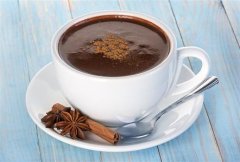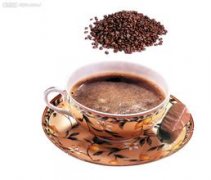A brief introduction to the treatment method of grinding degree and baking degree of Antigua boutique coffee beans

These Mayan-run coffee industries once made Guatemala's economy prosperous and occupied a dominant position in the national economy. Unfortunately, however, the political situation in Guatemala is not conducive to these coffee growers. High output is usually a sign of overall economic prosperity in a country. However, coffee production in Guatemala has declined relatively, to only 700 kg/ha, compared with 900 kg/ha in El Salvador and a staggering 1700 kg/ha in Costa Rica. Guatemala's coffee export trade is controlled by private companies, but the National Coffee Council controls other sectors of the coffee industry.
Some of Guatemala's finest coffee is currently exported to Japan, where it sells for $3-$4 a cup. In order to revitalize its coffee industry, Guatemala has set up a special coffee association and given maximum support and attention to these high-quality coffees. These efforts will soon bear fruit, and the real beneficiaries are not only coffee growers, but coffee lovers all over the world.
Aristocrats in coffee
Guatemala Antigua coffee is not only smooth and hard, but also of good quality. It is a perfect combination of acid and sweet. Together with a trace of smoke, it emphasizes its deep depression and mystery.
Guatemala is located in the middle of North and South America, and its geographical position occupies an important position in Central America. Guatemala covers an area of approximately 108899 square kilometers. Land features can be divided into: volcanic plateau, lowland tropical forests, volcanic sandy coastal plains on the Pacific coast, and virgin land on the Caribbean coast. The Sierra Madre Mountains in Central America span east and west of Guatemala, covering an area of about 2/3 and containing 34 volcanoes. Rivers and lakes dot the landscape, while equatorial forests and plain jungles cover it. The Pacific and Caribbean coasts also have undeveloped volcanic beaches.
Like Guatemala's fine coffee, Antigua coffee is grown in shade. In Antigua, shade is mainly used to protect coffee trees from frost, which sometimes occurs during the colder nights from December to February. The dense shade combined with the shallow aquifer creates a unique microclimate for the coffee trees that inhabit it.
Antiguan Coffee Reviews:
Aroma 7.8; Flavor 7.85; Acidity 7.95; Balance 7.63; Overall 7.78; Alcohol 7.85; Aftertaste 7.60
Delicate, balanced, rich in aroma and excellent in sweetness. Fertile volcanic soil, low humidity, plenty of sunshine and cool nights all make Antigua unique.
The majestic three volcanoes Agua, Acatenango and Fuego surround Antigua Valley. Every once in a while, Fuego-one of three active volcanoes in Guatemala-adds fresh ash rich in minerals to Antigua's soil. Volcanic pumice in the soil keeps the soil moist, making up for Antigua's lack of precipitation-Antigua has the lowest precipitation of Guatemala's eight coffee-producing regions and is extremely high in pumice (from active Fuego volcano) keeps humidity constant at 65% year-round, which is very different from other volcanic coffee producing areas, where humidity usually varies greatly between dry and wet seasons. Most coffee trees are planted in the heart of the valley, even though the altitude has reached 5000 feet. In addition, some farmers grow coffee on the slopes of volcanoes, at an altitude of nearly 5600 feet. Antigua is an enclosed valley surrounded by three volcanoes: Agua, Acatenango and Fuego. Antigua is flat and slightly sloping, unlike other coffee growing areas in volcanic areas. Antigua Valley is Guatemala's oldest and best known coffee growing area. Volcanoes and shallow water tables create a dry microclimate characterized by low humidity, plenty of sun and cool nights
Drinking pure Guatemala Antigua coffee and playing a South American folk song. Our thoughts can be drawn far away, far away from the time we never met. The wise Mayans who once existed on the land of Guatemala, after a day's work under coffee trees we have never seen before, enjoyed authentic Guatemala coffee after dinner and watched the sunset gradually disappear into the horizon...
Mayan culture is one of the most important ancient cultures in the world, and it is also an important classical culture in America. According to historical data, the Mayan people cultivated new varieties of food that made significant contributions to mankind in agricultural production, such as corn, tomatoes, squash, beans, sweet potatoes, peppers, cocoa, vanilla and tobacco, among which corn cultivation made the greatest contribution to mankind. Although there is no record of coffee here, most coffee growers in Guatemala today can be considered descendants of the Mayans, as they themselves prefer to be called.
Guatemala coffee has a strong aroma, even if you don't drink it, just smelling it is already a pleasure. Antigua coffee has a rich and velvety body, rich and lively aroma, and fine acidity. When the seductive aroma lingers on your tongue, it implies an indescribable mystery. On the first sip, you may feel bland, but as the coffee cools, you'll find it slightly sweet and be pleasantly surprised by its depth.
Antigua coffee is sought after by most coffee lovers because of its distinctive aroma. Because it is planted on the belly of volcanoes, it can retain its own characteristics more than Costa Rica, mainly because it has more geographical and climatic advantages than Costa Rica. Guatemala is located in the tropics, but due to its high altitude, the climate is mild and subtropical. Coffee trees bloom and bear fruit slower than coffee trees in other parts of the world under the influence of this climate. However, the mild climate combined with fertile soil creates an excellent environment for growing coffee.
Important Notice :
前街咖啡 FrontStreet Coffee has moved to new addredd:
FrontStreet Coffee Address: 315,Donghua East Road,GuangZhou
Tel:020 38364473
- Prev

A brief introduction to the planting situation of Antigua boutique coffee beans, geographical location, climate and altitude
Coffee in the aristocratic Guatemala Antigua coffee is not only smooth, high hardness, good quality, more full-bodied and sour and sweet perfect match, coupled with a trace of smoke, but also emphasizes its deep and mysterious. Guatemala is located in the center of North and South America, and its geographical location occupies an important position in Central America. Guatemala covers an area of about 108899 square kilometers. Land characteristics can be divided.
- Next

A brief introduction to the description of flavor and aroma characteristics of Costa Rican Saint Roman boutique coffee beans
High-quality Costa Rican coffee is called extra hard beans, and this kind of coffee can grow at an altitude of more than 1500 meters. Altitude has always been a problem for coffee growers. The higher the altitude, the better the coffee beans, not only because the higher altitude can increase the acidity of the coffee beans and thus increase the flavor, but also because the night temperature at the higher altitude is lower, which can make the trees grow slowly.
Related
- Detailed explanation of Jadeite planting Land in Panamanian Jadeite Manor introduction to the grading system of Jadeite competitive bidding, Red bid, Green bid and Rose Summer
- Story of Coffee planting in Brenka region of Costa Rica Stonehenge Manor anaerobic heavy honey treatment of flavor mouth
- What's on the barrel of Blue Mountain Coffee beans?
- Can American coffee also pull flowers? How to use hot American style to pull out a good-looking pattern?
- Can you make a cold extract with coffee beans? What is the right proportion for cold-extracted coffee formula?
- Indonesian PWN Gold Mandrine Coffee Origin Features Flavor How to Chong? Mandolin coffee is American.
- A brief introduction to the flavor characteristics of Brazilian yellow bourbon coffee beans
- What is the effect of different water quality on the flavor of cold-extracted coffee? What kind of water is best for brewing coffee?
- Why do you think of Rose Summer whenever you mention Panamanian coffee?
- Introduction to the characteristics of authentic blue mountain coffee bean producing areas? What is the CIB Coffee Authority in Jamaica?

